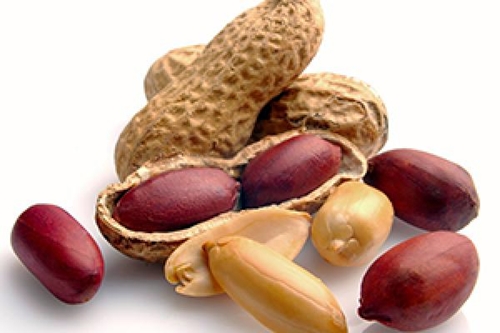
(National Institute of Food and Agriculture, USDA)
21 February 2018. A large-scale clinical trial shows a preventive treatment desensitizes peanut allergies in children, with most participants able to tolerate substantial amounts of peanut proteins after 1 year. The study, conducted by biotechnology company Aimmune Therapeutics Inc. in Brisbane, California, also showed the treatments safe for most participants, although 1 in 5 individuals discontinued their participation and 1 in 8 stopped due to adverse effects.
Allergies to peanuts and other foods are a result of the body’s immune system misinterpreting certain foods as pathogens, and responding by the release of histamines, chemicals in the body causing the allergy symptoms. In most cases, the symptoms are mild, such as runny nose and itching, but people with peanut allergies face a real and elevated risk of anaphylaxis, a life-threatening condition constricting airways, swelling the throat, and causing a sharp drop in blood pressure. Food Allergy Research and Education says some 15 million people in the U.S. including nearly 6 million children, have a food allergy, with growing numbers of people reporting an allergy.
Aimmune develops a form of immunotherapy for food allergies, starting with peanuts. The company’s technology known as Codit exposes people with food allergies to increasing amounts of the allergens over about 6 months, thereby desensitizing the individuals to the allergen. Codit, says Aimmune, enhances conventional oral immunotherapies by precisely controlling the amount of offending food protein ingested by people with food allergies and establishing treatment routines that start with very small amounts and gradually increasing the amounts over time.
The late-stage clinical trial tested Aimmune’s AR101 as a powder given in capsules and sachets to 499 children age 4 to 17 with peanut allergies, and a separate group of 55 adults age 18 to 49, in North America and Europe. Participants were randomly assigned to receive either AR101 or a placebo in similar forms, first in increasing doses to build the tolerance, then in maintenance quantities for the remainder of a 12 month period. After that time, participants were asked to ingest from 300 to 1,000 milligrams of peanut protein to test the treatment’s effectiveness; the company says 1 peanut kernel is the equivalent of 250 to 300 milligrams of peanut protein.
The primary outcome goal for the trial was the ability to ingest 600 or 1,000 milligrams of peanut protein in North America and Europe respectively, with no more than mild reaction symptoms, after the 12 month period. About two-thirds (67%) of all children receiving AR101 were able to tolerate 600 milligrams of protein, as did half (50%) of the group for 1,000 milligrams. Among the AR101 children recipients completing the trial, 85 percent tolerated the 600 milligrams of peanut protein, with 63 percent tolerating 1,000 milligrams. By comparison, no more than 2 to 4 percent of the placebo recipients were able to ingest 600 to 1,000 milligrams of protein.
Among the adult participants, 85 percent of those completing the study were able to tolerate 600 milligrams of peanut protein, compared to 15 percent among placebo recipients. The number of participants, however, was not large enough for statistical reliability.
About 1 in 5 children (20%) and about half, 21 of 41, adult recipients of AR101 dropped out of the trial before its completion. Some 1 in 8 children (12%) and 8 adults receiving AR101 reported adverse effects. The study reported serious adverse effects in 10 participants during the trial, of which 2 incidents were related to the treatments.
Aimmune expects to submit an application for review of AR101 as a biologic therapy to FDA by the end of 2018 and to European regulatory authorities early next year. The company says AR101 already received breakthrough and fast-track designation from FDA as a treatment for peanut allergies in children.
More from Science and Enterprise:
- Sanofi Buys Nano-Antibody Biotech in $4.8B Deal
- NIH Grant Funds Synthetic Peptide for Severe Asthma
- Zymeworks, Janssen in $1.45B Antibody Licensing Deal
- Biotech Licenses Gene Editing for Autoimmune Disorders
- Trial Shows Antibody Effective Against Asthma
* * *

 RSS - Posts
RSS - Posts
You must be logged in to post a comment.